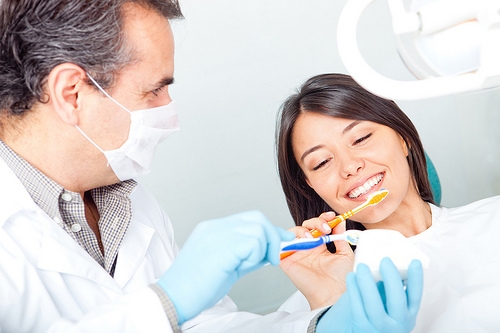What is Remineralization?
May 11th, 2022

“What is the strongest substance in the body?” If this question comes up on trivia night, be prepared to impress your team when you confidently answer, “Tooth enamel!”
Tooth enamel? The reason for this surprising answer lies in the biology of our teeth. Minerals make up well over 90% of our enamel, a much higher percentage than is found anywhere else in the body, including our bones. But unlike bone tissue, which can heal and regenerate, tooth enamel cannot. Even though it is extremely strong, enamel can be damaged by a process called demineralization.
Demineralization
Demineralization is a result of acids at work in our mouths. Acids actually break down the minerals in our enamel, making the enamel softer. Over time, bacteria attack deeper into the tooth, eventually leading to decay. Acidic foods like sodas, citrus, pickles, and coffee are obvious culprits in providing an acidic environment, but there are other problem foods as well. We all have bacteria in our mouths, which can be helpful or harmful. The bacteria in plaque use the sugars and starches we eat to produce even more acids.
This process is something that takes place very quickly. In fact, even brushing too soon after eating something acidic can damage the demineralized surface of a tooth. Waiting at least 20 to 30 minutes to brush gives our bodies a chance to restore the enamel surface in a process called remineralization.
Remineralization
Our bodies are actually designed to help protect our enamel, and the most important part of this process is saliva production. Saliva cleanses our teeth and reduces levels of acidity. And our saliva constantly washes important minerals over our teeth. Calcium and phosphate ions rebuild and strengthen molecules where demineralization has taken place. This process is called remineralization.
We have other ways to help the remineralization process along. Fluoride toothpastes and fluoridated water speed up the movement of mineral building blocks back to the surface of the tooth. Fluoride also strengthens our teeth so that they resist acids and demineralization better than teeth without fluoride, making them less vulnerable to cavities.
New products are available for home and professional use that are designed to increase remineralization—talk to Dr. Meuselbach at our West Chester office if you would like the latest recommendations. In fact, talk to us about tooth-friendly menus, the best toothpastes, brushing techniques, and all the ways to keep your enamel its healthiest. You’ll be answering all those trivia questions with a strong, confident smile!



